In 2018, ThePrint’s list of India’s leading intellectuals captured the zeitgeist like nothing else. Public conversation about it lasted for weeks.
This year, we bring you a new list—the intellectuals to watch out for in the next decade.
ThePrint formed a jury panel of field experts to nominate a list of thinkers in the fields of geostrategic affairs, economy, social science, and political thought. Members of the jury decided the names individually and in complete secrecy.
For the geostrategic affairs list, jury members identified the following Indians who are thinking, speaking, and writing in transformative ways.
Jurors: ThePrint’s panel of jurors includes author, India Foundation president and RSS leader Ram Madhav, Carnegie India director Rudra Chaudhuri, former High Commissioner to Pakistan TCA Raghavan, geopolitics analyst and former IDSA Associate Fellow Swasti Rao, and author and columnist C Raja Mohan.
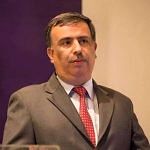 Amitabh Mattoo: Dean, School of International Studies, JNU
Amitabh Mattoo: Dean, School of International Studies, JNU
He is an independent thinker who has ably straddled the three related but separate fields of international relations scholarship, university administration, and policy-oriented think tanks. His contribution to the deepening and widening of scholarly analyses of foreign and security policy is immense and will grow further.
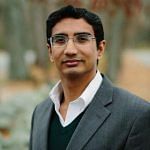 Dhruva Jaishankar: Executive Director at Observer Research Foundation (ORF) America
Dhruva Jaishankar: Executive Director at Observer Research Foundation (ORF) America
Dhruva is a rising star in Indian foreign policy, particularly in the US academic and think tank circles. Known for his sharp insights, Dhruva has become a thought leader, bringing in-depth analysis to the discourse on global and Indian foreign relations.
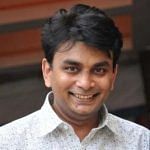 D Suba Chandran: Professor and Dean, School of Conflict and Security Studies at the National Institute of Advanced Studies
D Suba Chandran: Professor and Dean, School of Conflict and Security Studies at the National Institute of Advanced Studies
Chandran’s efforts to consolidate a fraternity of young scholars cutting across different universities and institutions in South India who are interested in India’s neighbourhood, thinking critically about its peace and conflict issues, contextualising these in terms of regional fault lines elsewhere, and exploring the technology dimensions of foreign policy will yield rich results in the future.
 Garima Mohan: Senior Fellow, Indo-Pacific Program at the German Marshall Fund of the United States
Garima Mohan: Senior Fellow, Indo-Pacific Program at the German Marshall Fund of the United States
Garima works on India’s ties with Europe and the United States. Her deep knowledge of Europe will be invaluable as India rethinks its role on the continent following the Russian invasion of Ukraine. Her articles frequently appear in The Hindu, The Wire, and DW.
 Happymon Jacob: Associate Professor, JNU
Happymon Jacob: Associate Professor, JNU
Jacob is at the vanguard of those thinking independently and objectively about Indian foreign and diplomatic policy challenges. He stands out for his efforts in developing a genuinely Indian perspective on regional and global affairs. At JNU, his area of interest is arms control and disarmament, and India’s foreign policy.
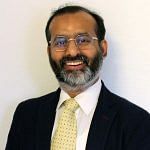 Jagannath Panda: Head, Stockholm Centre for South Asian and Indo-Pacific Affairs, ISDP, Sweden
Jagannath Panda: Head, Stockholm Centre for South Asian and Indo-Pacific Affairs, ISDP, Sweden
Panda has contributed extensively to the knowledge pool on India’s relations with China, South Korea, and Japan. He is one of the very few academic scholars with a wide-ranging presence in numerous international journals and magazines.
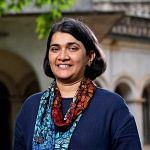 Jahnavi Phalkey: Lecturer, India Institute, King’s College London
Jahnavi Phalkey: Lecturer, India Institute, King’s College London
Jahnavi’s book, The Atomic State: Big Science in 20th Century India, broke new ground when it was published in 2013. Beyond her scholarly contributions, Jahnavi has brought “Big Science” to the people by setting up the Science Gallery in Bengaluru—an incredible effort that vividly bridges broadly defined ideas in science with something visual for everyday folks to connect with.
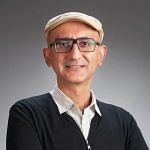 Manjeet Pardesi: Associate Professor, Victoria University of Wellington, New Zealand
Manjeet Pardesi: Associate Professor, Victoria University of Wellington, New Zealand
Manjeet works on a historical perspective of India’s grand strategy and world order. His research on the historic roots of India’s grand strategy and the evolution of the international system will shed light on India’s ascent in the global order.
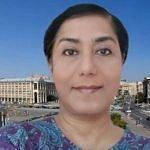 Mridula Ghosh: Associate Professor, National University of Kyiv-Mohyla Academy
Mridula Ghosh: Associate Professor, National University of Kyiv-Mohyla Academy
Mridula is perhaps the only Indian intellectual who can speak both Russian and Ukrainian, in addition to English, and has published in all three languages with equal proficiency. She has done extensive work on post-colonialism, particularly on the de-colonisation of Ukraine from an Indian post-colonial perspective. Having worked with the UN on gender and developmental issues and conducted significant ground research, Mridula embodies the spirit of the modern Indian woman intellectual who dons several hats with equal elan.
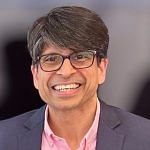 Pramod Verma: Chief Architect of Aadhaar and India Stack layers
Pramod Verma: Chief Architect of Aadhaar and India Stack layers
It is unlikely that Pramod would identify himself as an intellectual—but he is one. He is the quintessential thinker-architect-practitioner. His well-considered thinking, creative expressions, and sheer elasticity in imagination have informed the approach to citizen-centric digital transformation in India and beyond. Popularly known as the chief architect of India Stack, the effects of his work will be discussed for decades to come.
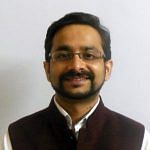 Pranay Kotasthane: Deputy Director, Takshashila Institution
Pranay Kotasthane: Deputy Director, Takshashila Institution
A technologist turned public policy thinker and writer on technology, Pranay is someone we will be reading and listening to for a very long time to come. His work on semiconductors bridges the intellectual divide between engineering and social science. Pranay represents a new generation of thought leaders who provide critical insights into the otherwise nebulous term: geopolitics of technology, especially at the intersection of the US-China geopolitical contestation and the unfolding technological revolution.
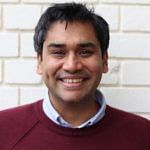 Rudra Chaudhuri: Director, Carnegie India
Rudra Chaudhuri: Director, Carnegie India
Rudra is among the rare scholars of his generation in India who situates himself at the intersection of diplomatic history, foreign and security policy analysis, and emerging technologies. His efforts in shaping informed debates on these issues have gathered significant traction and will yield even greater results in the future.
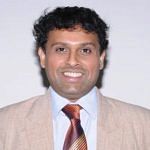 Sreeram Chaulia: Dean, Jindal School of International Affairs
Sreeram Chaulia: Dean, Jindal School of International Affairs
An extensively published author, commentator, and host of the acclaimed talk show ‘Indian Diplomacy’ on DD India, Sreeram is one of the few nationalist public intellectuals today with a vision for India’s rise in the 21st century. His latest book, Friends: India’s Strategic Partners, was released recently.
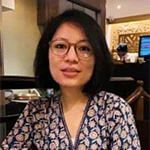 Shristi Pukhrem: Deputy Director (Academics & Research), India Foundation
Shristi Pukhrem: Deputy Director (Academics & Research), India Foundation
Scholarship on ASEAN and Southeast Asia is rare in India, and Shristi is one of the few experts in this field. With a doctorate from JNU on India-ASEAN relations and as a prolific scholar on contemporary ASEAN affairs, Shristi stands tall among her peers. As a Manipuri intellectual, she is a prominent figure among the few foreign policy scholars from India’s Northeast.
 Vasabjit Banerjee: Assistant Professor, Department of Political Science, University of Tennessee, Knoxville
Vasabjit Banerjee: Assistant Professor, Department of Political Science, University of Tennessee, Knoxville
Vasabjit’s research focuses on the domestic and foreign policy effects of collective action in developing countries. He has written extensively on weapons trade flows involving China, Russia, and India, with a particular emphasis on the impact of the Russia-Ukraine war.



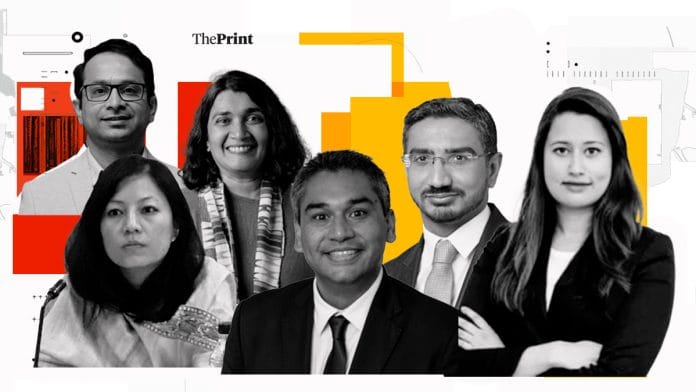



Rudra Chaudhuri is part of the panel of jurors. And he is part of the selected candidates too.
What kind of joke is this?
Care to clarify The Print?